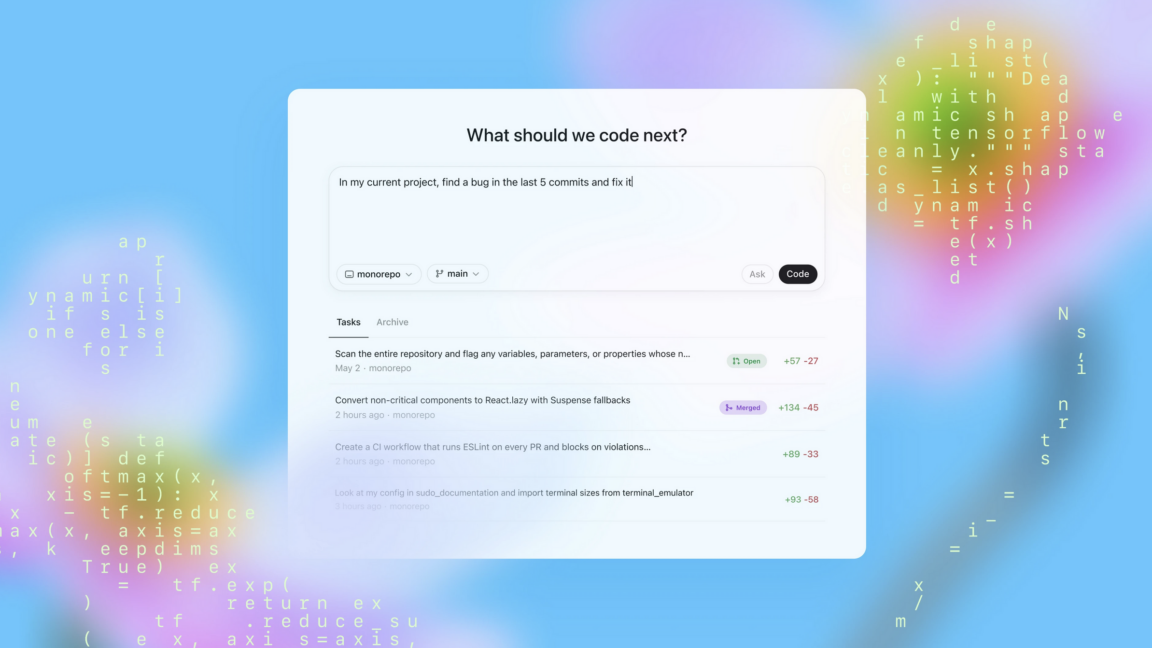
Republicans push for a decadelong ban on states regulating AI
The provision could end existing state-level AI laws.
Republicans push for a decadelong ban on states regulating AI
Lawmakers buried the provision in a budget reconciliation bill — and it could extend beyond AI.
by Emma Roth
May 13, 2025, 5:10 PM EDT
15 Comments15 New

Image: Cath Virginia / The Verge | Photos from Getty Images
Emma Roth is a news writer who covers the streaming wars, consumer tech, crypto, social media, and much more. Previously, she was a writer and editor at MUO.
Republicans want to stop states from regulating AI. On Sunday, a Republican-led House committee submitted a budget reconciliation bill that proposes blocking states from enforcing “any law or regulation” targeting an exceptionally broad range of automated computing systems for 10 years after the law is enacted — a move that would stall efforts to regulate everything from AI chatbots to online search results.
Democrats are calling the new provision a “giant gift” to Big Tech, and organizations that promote AI oversight, like Americans for Responsible Innovation (ARI), say it could have “catastrophic consequences” for the public. It’s a gift companies like OpenAI have recently been seeking in Washington, aiming to avoid a slew of pending and active state laws. The budget reconciliation process allows lawmakers to fast-track bills related to government spending by requiring only a majority in the Senate rather than 60 votes to pass.
This bill, introduced by House Committee on Energy and Commerce Chairman Brett Guthrie (R-KY), would prevent states from imposing “legal impediments” — or restrictions to design, performance, civil liability, and documentation — on AI models and “automated decision” systems. It defines the latter category as “any computational process derived from machine learning, statistical modeling, data analytics, or artificial intelligence that issues a simplified output, including a score, classification, or recommendation, to materially influence or replace human decision making.”
That means the 10-year moratorium could extend well beyond AI. Travis Hall, the director for state engagement at the Center for Democracy & Technology, tells The Verge that the automated decision systems described in the bill “permeate digital services, from search results and mapping directions, to health diagnoses and risk analyses for sentencing decisions.”
During the 2025 legislative session, states have proposed over 500 laws that Hall says this bill could “unequivocally block.” They focus on everything from chatbot safety for minors to deepfake restrictions and disclosures for the use of AI in political ads. If the bill passes, the handful of states that have successfully passed AI laws may also see their efforts go to waste.
“The move to ban AI safeguards is a giveaway to Big Tech that will come back to bite us.”
Last year, California Gov. Gavin Newsom signed a law preventing companies from using a performer’s AI-generated likeness without permission. Tennessee also adopted legislation with similar protections, while Utah has enacted a rule requiring certain businesses to disclose when customers are interacting with AI. Colorado’s AI law, which goes into effect next year, will require companies developing “high-risk” AI systems to protect customers from “algorithmic discrimination.”
California also came close to enacting the landmark AI safety law SB 1047, which would have imposed security restrictions and legal liability on AI companies based in the state, like OpenAI, Anthropic, Google, and Meta. OpenAI opposed the bill, saying AI regulation should take place at the federal level instead of having a “patchwork” of state laws that could make it more difficult to comply. Gov. Newsom vetoed the bill last September, and OpenAI has made it clear it wants to avoid having state laws “bogging down innovation” in the future.
With so little AI regulation at the federal level, it’s been left up to the states to decide how to deal with AI. Even before the rise of generative AI, state legislators were grappling with how to fight algorithmic discrimination — including machine learning-based systems that display race or gender bias — in areas like housing and criminal justice. Efforts to combat this, too, would likely be hampered by the Republicans’ proposal.
Democrats have slammed the provision’s inclusion in the reconciliation bill, with Rep. Jan Schakowsky (D-IL) saying the 10-year ban will “allow AI companies to ignore consumer privacy protections, let deepfakes spread, and allow companies to profile and deceive consumers using AI.” In a statement published to X, Sen. Ed Markey (D-MA) said the proposal “will lead to a Dark Age for the environment, our children, and marginalized communities.”
Related
- What does OpenAI really want from Trump?
- OpenAI and Google ask the government to let them train AI on content they don’t own
The nonprofit organization Americans for Responsible Innovation (ARI) compared the potential ban to the government’s failure to properly regulate social media. “Lawmakers stalled on social media safeguards for a decade and we are still dealing with the fallout,” ARI president Brad Carson said in a statement. “Now apply those same harms to technology moving as fast as AI… Ultimately, the move to ban AI safeguards is a giveaway to Big Tech that will come back to bite us.”
This provision could hit a roadblock in the Senate, as ARI notes that the Byrd rule says reconciliation bills can only focus on fiscal issues. Still, it’s troubling to see Republican lawmakers push to block oversight of a new technology that’s being integrated into almost everything.















